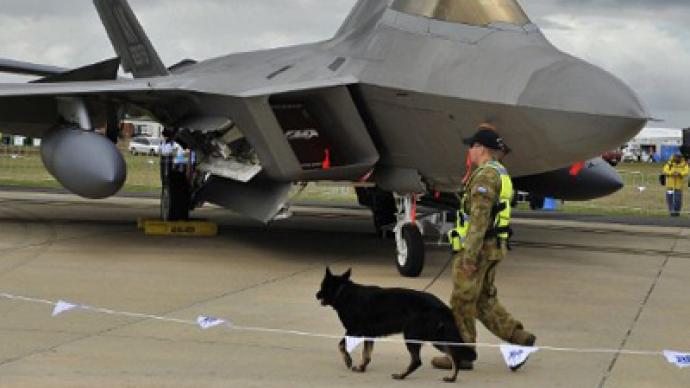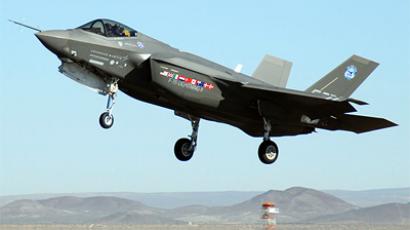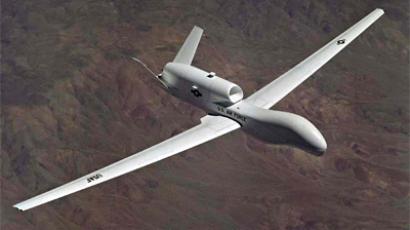Soaring fears: Pilots refuse to fly in F-22s after ongoing problems

The US military’s fleet of F-22 Raptors is among the most advanced — and expensive — jet programs in the history of the Air Force. Two pilots have put their jobs on the line, however, to warn the world of the plane’s potential to kill its own crew.
American Air Force pilots have continuously complained about the F-22 jet’s peculiar habit of leaving servicemen unusually sick after flying the stealth plane. They’ve reported blacking out and developing symptoms mid-air that are on par with serious oxygen deprivation. At least one of them has even died. Despite these problems, the Pentagon continues to pressure its own pilots into climbing into the cockpits of the fighter jets and risking their lives. Captain Josh Wilson and Major Jeremy Gordon now fear for their safety and refuse to fly the F-22. But by speaking out, the two celebrated servicemen now fear that the military will come out against their own personnel and perhaps even penalize them for voicing their concern. Earlier this year, the military’s Office of Special Counsel opened up a probe after it was reported that the some of the Pentagon’s top-brass sought the termination of employees at the Dover Air Force base after they blew the whistle on misconduct there. Now only months later, more pilots are being forced to fight for their lives, even if it means risking their reputation.Both pilots spoke with CBS’ 60 Minutes news program about their worries with the stealth jets, but only on condition that a congressman accompanied them to the interview. They are worried that, if not represented by a lawmaker, they risk losing their jobs and perhaps more.“Congress granted protection to whistleblowers in general and specifically military to say: if you have a concern, you know – not something obviously little – but something pretty big and serious… you have a right to talk to your congressman,” Rep, Adam Kinzinger (R-Illinois) tells the network, “because just 'cause you join the military doesn't mean you give up your right to citizenship.”“There have been squadrons that have stood down over concerns—and there's been threat of reprisals,” explains Wilson, an Air Force captain and veteran of the Iraq War. “There's been threat of flying evaluation boards clipping our wings and doing ground jobs. And, you know, in my case potentially getting booted out of the Air Force. So right now there's an example being set of, ‘Hey, if you speak up about safety, you're gonna be out of the organization.’”Along with Maj. Gordon, these two men are but a pair of roughly 200 pilots who are qualified to fly the F-22. Of that sample, 36 have come forward to report incidents onboard the craft. Captain Jeff Haney is one pilot who never put through a formal complaint — he died when his F-22 crashed after his flow of oxygen was disrupted.Captain Haney’s sister, Jennifer Haney, recently told ABC News that she believes that the Air Force thought of her brother as merely a statistic. “I'd like to think it's easier to blame Jeff. He's not here to defend himself,” she told the network earlier this month. “To them, Jeff was a number, it feels like sometimes. But those jets are worth a lot of money.”Cpt. Wilson fears that his life could be next.Speaking to 60 Minutes about his history on board the craft, the pilot says, “Several times during the flight, I had to really concentrate, immense concentration on just doing simple, simple tasks. Our training tells you if you suspect something's probably going on, go ahead and pull your emergency oxygen and come back home. When I did make that decision to pull the emergency oxygen ring, I couldn't find it. I couldn't remember, you know, what part of the aircraft it was in.”After that event, Wilson was asked to enter a hyperbaric chamber.“Hyperbaric, like the bends. This is the first time we've heard that pilots are going into hyperbaric chambers,” CBS News’ Lesley Stahl explains. Some pilots are even so concerned that the two servicemen report that many of their peers are purchasing additional life insurance policies. Others, including both Wilson and Gordon, have refused to board the jet until it is fully investigated.“We are waiting for something to happen. And if it happens, nobody's going to be surprised. I think it's a matter of time,” pleads Wilson.













